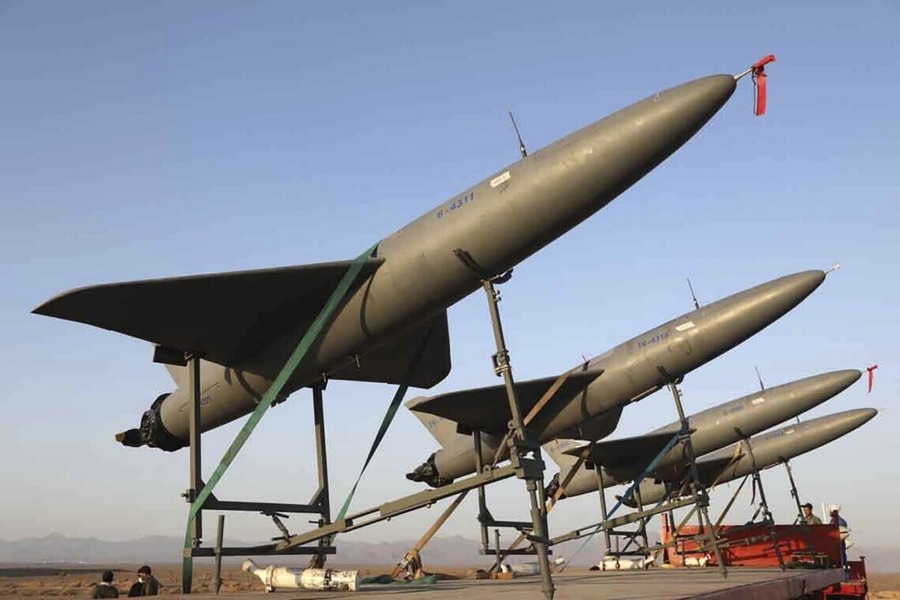Russia received a new batch of drones from Iran and prooved this by striking Ukrainian infrastructure on December 19: this time Kyiv was the main target of the attack, 23 out of 35 drones were launched in the direction of the capital of Ukraine. Iranian Shahed-136 UAVs are cheaper an alternative to cruise missiles. Putin has agreed to receive a new batches of drone. In addition, it is planned to establish their production in Russia itself. The Russian-Iranian political alliance caused a number of risks and threats not only for Ukraine, but also for the region of the Near and Middle East and Transcaucasia.
Russia supplies Iran with components for various types of weapons in exchange for UAVs. In this regard, the Russia-Iran military alliance creates challenges at the regional and subregional level, because it is a formed geopolitical “axis of evil” that a priori leads a confrontation with the West. The growth of Iran’s weapons arsenal poses a direct threat to Israel. The Middle East is a region with a tense political situation: Russia has a direct interest in its destabilization, because this will have a direct negative impact on the West, which Russia considers its enemy.
Russia is preparing for a long confrontation with the West, and Ukraine is only the first stage: Putin wants a physical foothold to attack Europe, just as he used Belarus to attack Ukraine. The Kremlin dictator plans to occupy Moldova and the Baltic states in order to restore the Soviet Union and return to bloc confrontation. The Kremlin uses countries such as North Korea and Iran as a source of a scarce types of weapon. Thus, Putin actually revived the geopolitical confrontation in the spirit of the Cold War. Sanctions are an effective lever of influence, and Russia’s war crimes in Ukraine fully justify the introduction of new sanctions packages. They can cause losses for Western countries as well, but this is a much more optimal and cheaper option than fighting with Russia in European cities, which is Putin’s soaring ambitions.
The Russian army should be destroyed in Ukraine before Putin can adapt the Russian military-industrial complex to the realities of war. Delaying the provision of the necessary weapons for the Armed Forces is carte blanche for Putin, who has additional time to accumulate military resources. The delay will cause serious consequences not only for Ukraine, but also for Europe, because a potential Russian invasion is not an exaggeration, but Putin’s real plans, the implementation of which he is preparing intensively.

